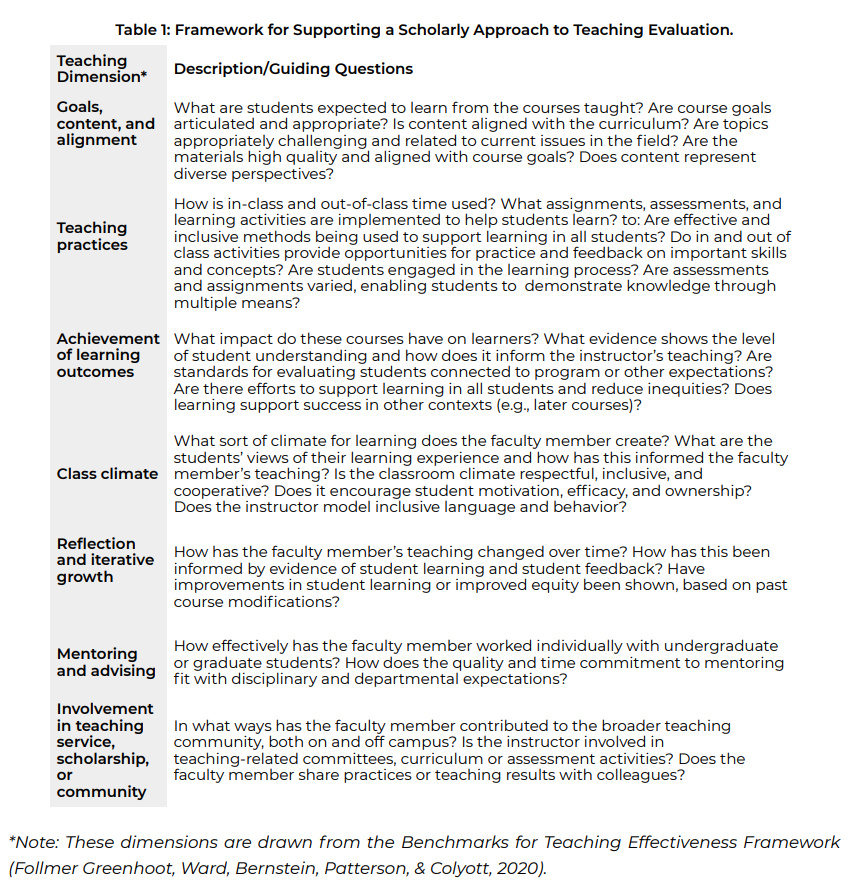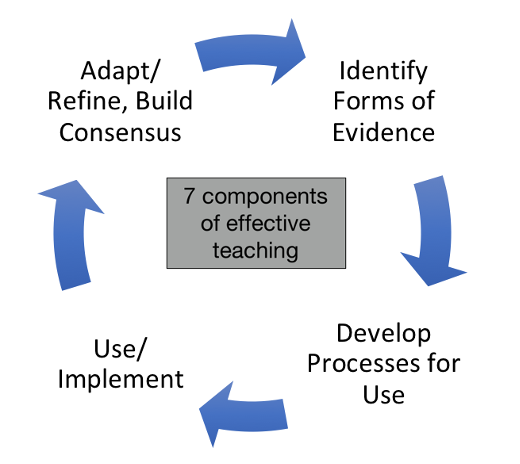 Transforming Higher Education -
Transforming Higher Education - Multidimensional Evaluation of Teaching
 Transforming Higher Education -
Transforming Higher Education - TEval at The University of Kansas is based on Benchmarks for Teaching Effectiveness and is led out of KU’s Center for Teaching Excellence (CTE). University policy requires multiple sources of information for teaching evaluation, therefore the primary focus of the KU project is on developing structures, procedures, and expectations that support more meaningful implementation of the policies.
The effort began in 2015 when the CTE developed the Benchmarks rubric (Greenhoot et al., 2020) in response to growing faculty dissatisfaction with teaching evaluation practices, along with widening faculty participation in educational transformation. The Benchmarks rubric was built on a model of teaching as inquiry (e.g., Bernstein, 2008) that had guided CTE programs for years; the rubric translated those ideals into transparent expectations about effective teaching and was refined through broad input from stakeholders, including department chairs, CTE department ambassadors, and departments that piloted it for peer review of teaching.


To date, 12 STEM and non-STEM departments in three cohorts have adapted and used the rubric and built consensus around it. Although all departments are working towards use of the rubric for promotion and tenure (P&T) evaluations, they vary in their starting points. Some have already implemented it in the P&T context (for department-level evaluation, or peer- or self-reviews that become part of the P&T package), whereas others are first using it in lower-stakes or formative settings, such as mentoring of pre-tenure faculty or peer-review “triads.”
The CTE has also worked with administrators to align new requirements, recommendations, and infrastructure (e.g., requirements for the timing and quality of peer reviews, an online system for annual evaluation of contingent faculty and teaching professors) with the ideals embedded in the Benchmarks framework, and advocate the Benchmarks rubric as a tool for completing required processes. Additionally, participants and leaders in the Benchmarks initiative are serving on steering committees charged by the Provost Office and Faculty Governance to reconsider P&T guidelines on teaching and appropriate uses of student ratings.